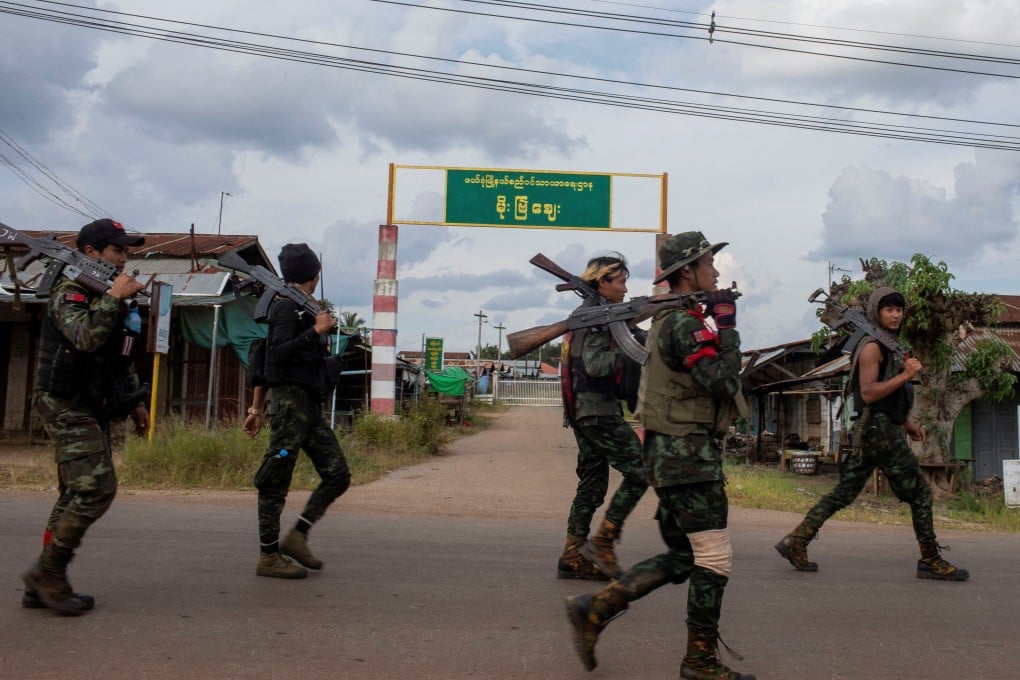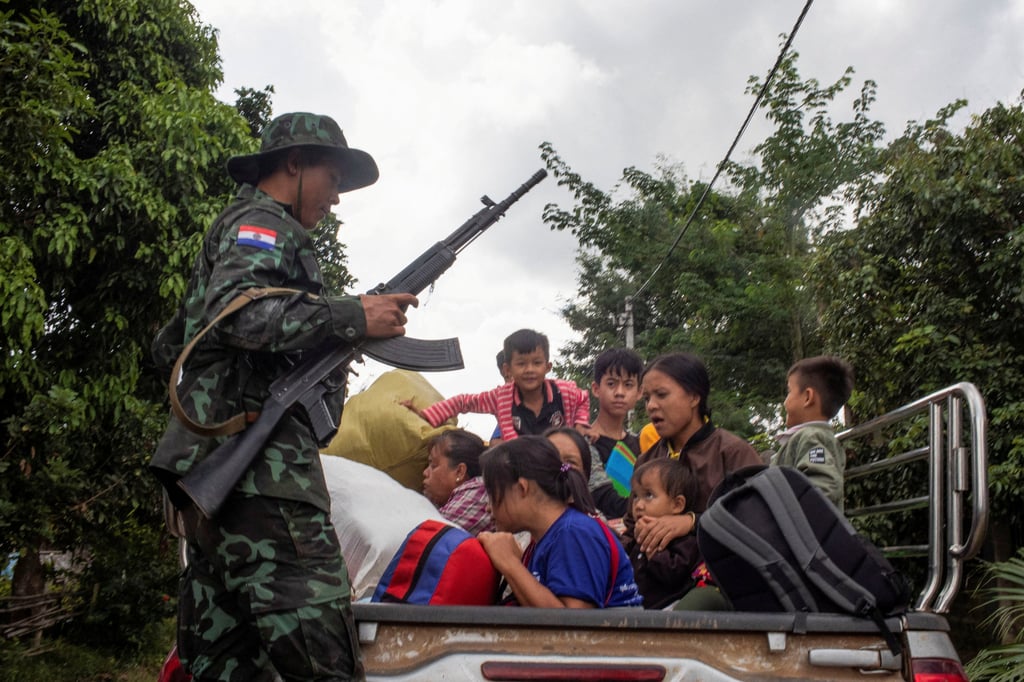Myanmar grapples with China’s ire amid rising anti-junta offensive
- The anti-junta operation came amid rising anger in Beijing with the junta over rampant crime on the border, which created conditions that supported the blitzkrieg, analysts say
- Anti-junta operations have since rapidly expanded across the country, with battles in the central region of Sagaing and in states near India and Bangladesh

“We were already preparing for the operation when we met them,” said Kyaw Naing, a spokesman for the Myanmar National Democratic Alliance Army (MNDAA), a largely ethnic-Chinese group that is part of the rebel coalition. Reuters interviewed a dozen resistance officials with knowledge of the operation, as well as analysts and other people familiar with the matter. Some spoke on condition of anonymity because the offensive is ongoing.

They disclosed previously unreported elements of the planning, including details of the formation of a unified battlefield brigade and the extent of China’s impatience toward the junta, which some analysts believe emboldened the militias.
The junta cracked down on protests after the coup, sparking a grass roots rebellion and reigniting conflict with some ethnic armies. The military, known as the Tatmadaw, has ruled Myanmar for five of the past six decades, and its soldiers are feared for their brutality and scorched earth tactics. The army says tough measures are required to fight groups it considers “terrorists”.
Two members of the Three Brotherhood Alliance together with five other armed groups formed the new Brigade 611 in early 2022, four rebel officials told Reuters. The formation’s strength numbers in the “thousands”, one of them said.